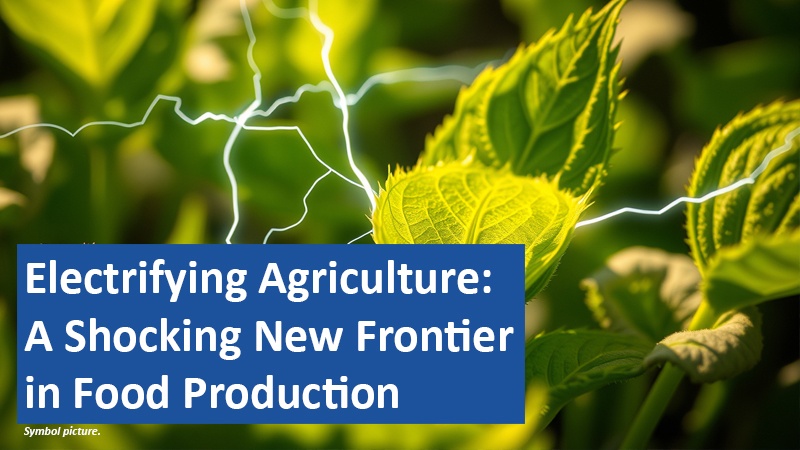
Researchers are exploring how electricity could revolutionize farming practices, potentially boosting crop yields while reducing pesticide use. This innovative approach, known as electro-agriculture, is sparking interest in scientific circles.
######################################################
Now exclusively try Amazon Prime and Prime Video free for 30 days!
####################################################
Harnessing the Power of Electric Fields
At the University of West London, scientist Aamir Jalal is investigating the effects of electric fields on plant growth. His experiments have yielded impressive results, showing that electricity can accelerate plant growth by up to 50 percent. By applying an electric field of 10,000 volts per meter, Jalal has not only promoted faster growth but also expedited seed germination and enhanced plant resistance to diseases. This breakthrough could significantly impact the way we cultivate crops, especially in controlled environments like greenhouses.
Promising Outcomes and Ongoing Challenges
The findings are encouraging: beyond accelerated growth, plants exposed to electric fields demonstrate improved nutrient uptake and increased pest resistance. This could significantly reduce the need for pesticides and fertilizers, contributing to a more sustainable agricultural practice. However, researchers face the challenge of fully understanding the mechanisms by which electricity influences plant growth. Further studies are needed to clarify how electric fields interact with plant cells and how this interaction leads to enhanced growth and resilience.
From Lab to Field
Despite promising laboratory results, practical application of electro-agriculture faces hurdles. Scaling the technology for large cultivation areas and integrating it into existing agricultural practices are complex tasks. Nevertheless, experts like Pradeep Kumar from the University of Birmingham see great potential in this method, particularly for controlled environment agriculture such as greenhouses. The controlled conditions allow for precise application of electric fields, which can be tailored to specific crop needs.
Future Prospects and Global Impact
Electro-agriculture could play a crucial role in addressing global challenges like food security and climate change. By increasing crop yields and reducing resource consumption, it promises a more sustainable approach to farming. Researchers like Jalal are optimistic that this technology will increasingly find its way into agricultural practice in the coming years. As the world grapples with feeding a growing population while minimizing environmental impact, innovative methods like electro-agriculture offer a promising path forward.
Moreover, the integration of electro-agriculture with other sustainable practices, such as hydroponics or vertical farming, could further enhance its benefits. By combining these technologies, farmers might achieve even higher yields while minimizing land use and water consumption. This synergy could be particularly beneficial in regions facing severe environmental constraints or where traditional farming methods are less viable.
How do you think this technology might reshape agriculture and our approach to feeding a growing global population? Share your thoughts in the comments!
Based on content from www.smithsonianmag.com and own research.